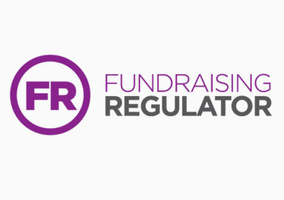Charities using subcontractors should have “line of sight” of any fundraising carried out in their name, the head of a regulator has said.
Speaking at the Fundraising Regulator’s annual event, chair Lord Harris emphasised the need for proactive regulation to maintain public trust.
Last year, the regulator opened its first market inquiry to look into issues with charities using subcontractors after media reports of fundraisers pressuring people to make donations.
Last month, Great Ormond Street Hospital Children’s Charity also reported itself to two charity regulators after its subcontracted fundraisers were accused of using “pressure-selling techniques”.
“The first significant project as part of this new more proactive approach has been our market inquiry launched to look into issues relating to the use of subcontractors to fundraise by charities,” Harris said.
“You will see some of the news coverage arising from the way some subcontractors have been operating.
“The aim of inquiry has been to better understand how door-to-door on street fundraising subcontracting relationships are arranged and reported in the sector.
“I can confirm that there will be recommendations for all charities and agencies involved in subcontracted face-to-face fundraising.”
Harris said the inquiry considered the arrangements for the contracts themselves, due diligence carried out, and payment models.
It looked at trading and monitoring as well as exit clauses, “and is rooted in what we learned from the charities and agencies we spoke to”.
“And of course it will set up our response as a regulator. As I said, that report will be published very soon,” he said.
Harris said reputational damage is done to the sector and to the charities themselves if they do not have proper monitoring, with the difficulty being there sometimes is not “a line of sight” from trustees.
“I think it's also about shining a light on these practices and ensuring that charities recognise the reputational damage that has been done to the sector, and particularly the reputational damage that has been done to themselves if they don't have monitoring of arrangements,” he said.
Harris warned that charities’ management may not be aware of “what is being done in their name”.
The regulator will publish a report and set of parameters, so charities can think “very carefully about how they maintain that line of sight and that confidence in what is being done in their name”.
Caseload rising
Gerald Oppenheim, chief executive of the Fundraising Regulator said: “As with previous years, we found our caseload has continued to increase, this year by 8%.”
There were an “increasing number of complaints and a significant number of much more complex investigations”, he said, but the regulator continued “to close 94% of cases within four weeks”.
“We now have over 6,000 charities registered with us, a 7% increase on the previous year,” said Oppenheim.
“And that's made up of around 2,000 levy-paying charities and around just over 4,000 other charities that spend less than £100,000 pounds a year.”
In the year to the 31 of August 2023, Fundraising Preference Service (FPS) users logged a total of 6,851 suppressions.
A third of those were made on behalf of someone else and 739 requests were made on behalf of someone who died.
“Numbers of FPS users continue to rise steadily as a result of increased public awareness service,” said Oppenhiem.
“And since the FPS was launched in 2017, over 54,000 suppressions have been made by over 28,000 people.”
Related Articles












